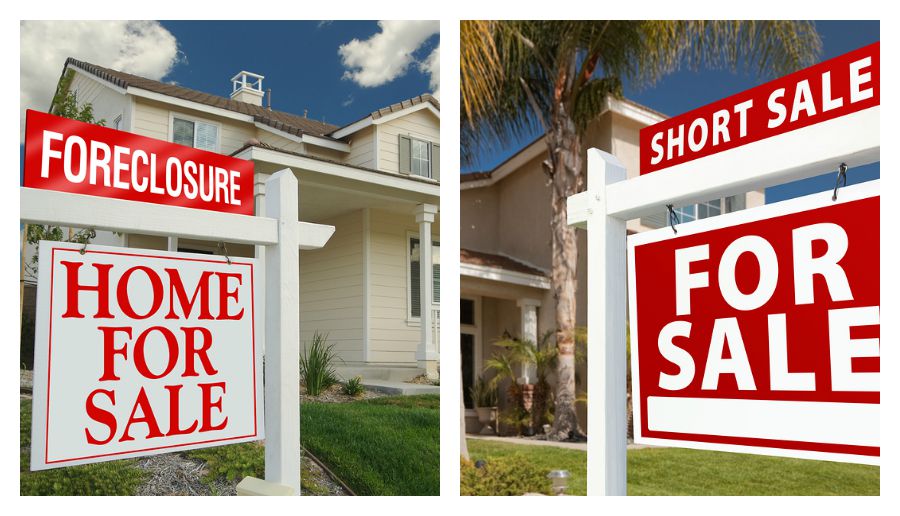If you’re a potential home buyer, chances are, you will come across a foreclosed property or a short sale during your search. Most buyers want to know the difference between the two and whether or not either is worth pursuing. The only commonality between a foreclosure and a short sale is that a bank (or lender of sorts) is involved in the decision making process of if/when/how the property may be sold. There are, however, major differences between a short sale and a foreclosure. Here are just a few.
The main difference between the two lies in who owns the property. In a short sale, the individual owners still technically own the home. The amount that the owners owe on the mortgage is more than what the home is worth. The sellers are “short” the amount of money needed to pay off the loan upon selling. Most likely, they are still making payments on the property and still living in the home, but they are aware that they are underwater. Sometimes they are behind on payments, but they are working with the bank for a reasonable resolution. Even though the individuals still own the property they need third party approval from the bank to sell for a lesser amount than what’s owed for the debt to be forgiven. The sellers have to approve of the sale terms and the lender does also.
A “short” sale can take a “long” time. Purchasing a short sale usually requires lots of paperwork, explanation from the sellers, and multiple departments reviewing the file. It can be a tedious process and some folks do not have enough time to wait for the bank to respond. A foreclosed property, however, is owned by the bank and operates more closely to the settlement parameters as a typical resale. The bank owns the property and wants to clear it off their books as soon as possible.
Not only does a short sale require a significant amount of due diligence, it also can take a long time to get a response back from the bank. A buyer and seller may come to agreement in terms and conditions on a short sale, only to have the bank deny the offer or counter the offer months later. Purchasers will need to hold their plans loosely until they hear from the bank. It can take anywhere from 30 – 365 days.
Given the major discrepancy in possible timelines between a short sale or foreclosure the best question to ask yourself is “do you have time to wait?” If there is no pressing need to buy your next home and you are in love with a specific short sale, then the short sale may be a valid option. The special scenario of a short sale will limit viable purchasers which could yield to a better purchase price. So, if you’re willing to wait, be patient, and hold your plans loosely, you may just luck out and get a terrific deal on your next home.

